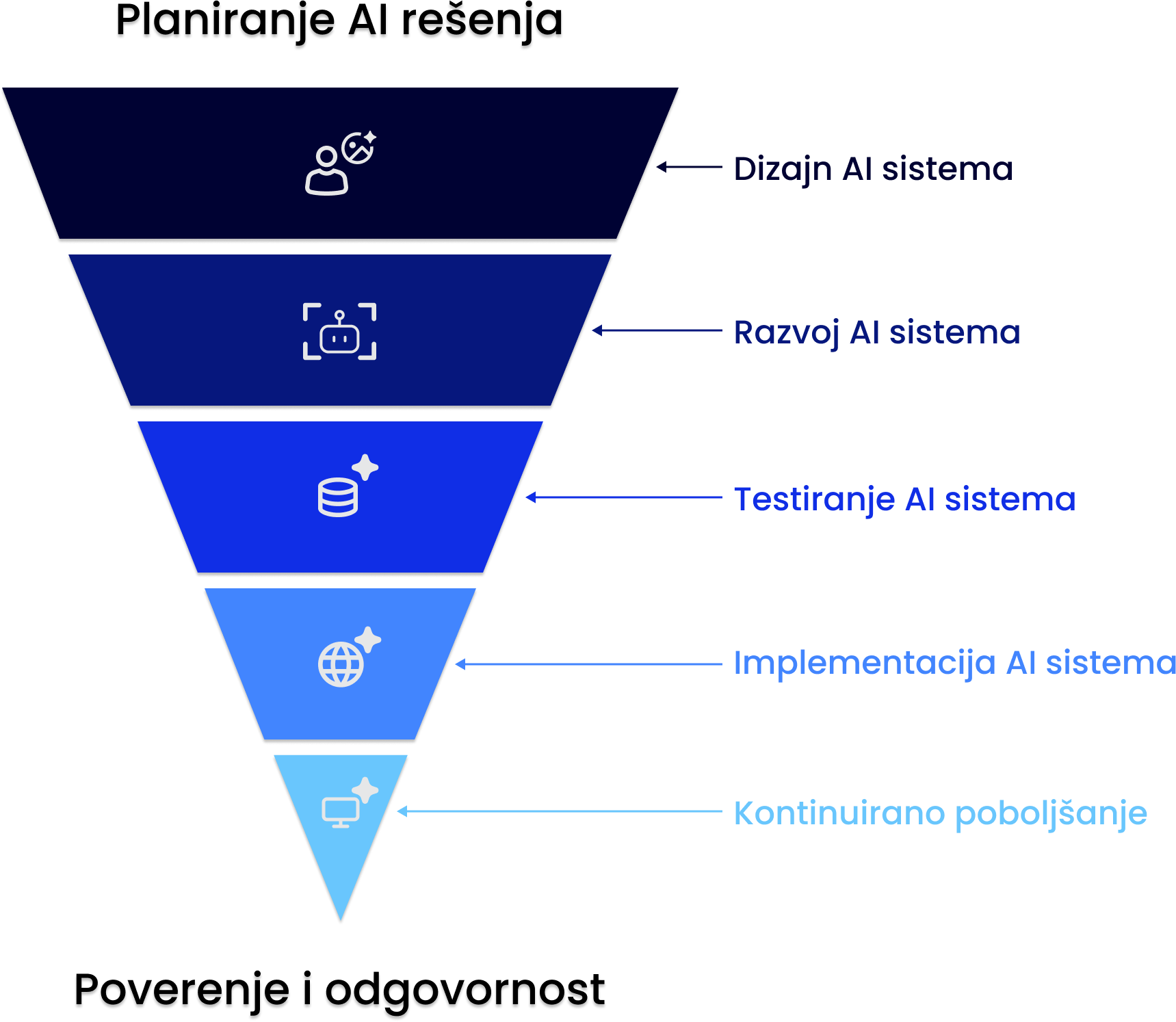Artificial Intelligence (AI) today is changing the way we do business, learn and communicate. From digital assistants and data analysis systems, to algorithms that support medical diagnostics and optimize logistics, AI has become a key driver of digital transformation. However, its rapid development raises questions: how to ensure reliable, ethical and safe use?
The answer is management systems. They enable organizations to develop, use and manage AI-based solutions in a structured way, while satisfying user requirements, ensuring information security and complying with legal provisions.
Artificial intelligence differs from traditional information systems because it relies on algorithms that learn from data and adapt to new circumstances. This ability brings great benefits, but also risks – from unpredictable system behavior to lack of transparency in decision-making.
Management systems enable companies to manage the application of artificial intelligence in their processes in a structured manner, with clearly defined responsibilities and authorities.
By implementing the requirements of the standard ISO 42001 the organization gets a framework for the entire life cycle of AI solutions. This includes planning, design, development, testing, implementation and continuous improvement. The standard encourages transparency, traceability and explainability - three key elements that instill confidence in users and regulatory bodies. The special value of ISO 42001 is reflected in the fact that it combines technical and organizational aspects. He talks not only about algorithms, but also about the role of leadership, employee accountability, resource management and stakeholder communication. An organization that implements this standard demonstrates that it treats AI not only as a technology, but also as part of its business and social responsibility.
At a time when decisions made by AI systems are often "invisible" to users, ISO 42001 provides a tool to make those decisions explainable and verifiable. This prevents loss of trust and reduces the risk of negative consequences, be they technical, legal or reputational.

ISO/IEC 27001 is an international standard that provides organizations with clear guidelines for establishing, maintaining and constantly improving information security management systems.
In the context AI system, this role becomes particularly important. AI depends on extensive data sets that are used to train systems and make decisions. If the information is not secure, the entire system can become unreliable. That's why ISO 27001 sets clear requirements for how organizations should identify information that is critical to the operation of algorithms, analyze the risks to which that data is exposed, and apply appropriate controls to protect it.
The standard emphasizes that information security is not only a technical issue, but a strategic direction of the entire organization. For AI, this means that data security must be part of a broader business approach – from collection and storage, to processing and use in algorithms. In this way, not only the information assets are protected, but also the user's trust in the results that AI provides.
While AI brings enormous benefits in speed of data processing and decision-making, it also raises issues of trust, ethics and fairness. From the aspect of artificial intelligence, ISO 26000 emphasizes several key principles:
As AI continues to develop, it is clear that its role in society and business will only grow. This is precisely why companies that want to be leaders in digital transformation must invest not only in algorithms and data, but also in processes, standards and ethical frameworks. This is the only way for AI to become sustainable and beneficial for all stakeholders in the long term.
The role of the management system in the development and implementation of solutions based on artificial intelligence it's not just a technical issue – it's an issue of trust, ethics and sustainability. Companies that align their operations with the requirements of relevant management systems such as ISO 42001 will not only be ready for legal obligations, but will also gain a significant advantage in the market.
According to everything, success lies in the mutual correlation of innovation and responsibility.
(c) 2025 Simplify. All Rights Reserved | Privacy Policy | Terms of Use